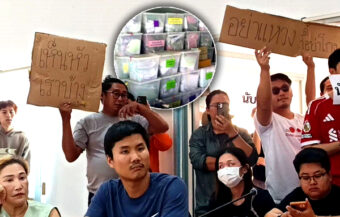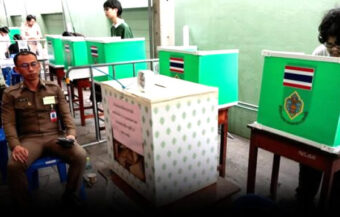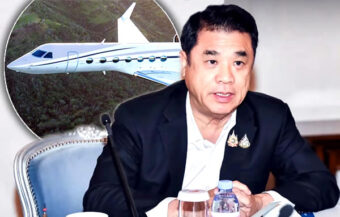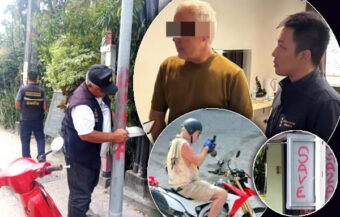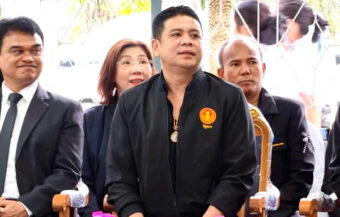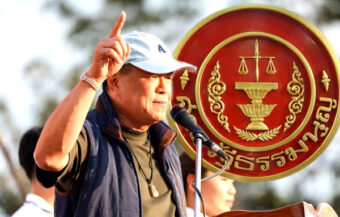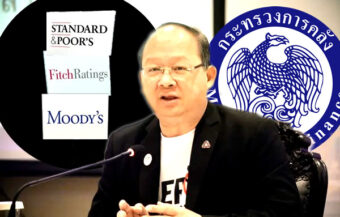Court rattled as leaked audio of PM Paetongtarn and Hun Sen sparks uproar, legal firestorm and mass protests. With July 1 looming, Thailand faces a potential political collapse as trust in the PM erodes, critics call for suspension and the nation braces for unwanted chaos.
A leaked audio tape and a betrayal by Cambodian strongman Hun Sen have plunged Thailand into political chaos. Last week, Prime Minister Paetongtarn Shinawatra was forced to apologize after a nine-minute clip exposed her to explosive accusations—from betrayal of trust to treason. Despite the Bhumjaithai Party’s defection, the government clings to a fragile majority and scrambles through a massive cabinet reshuffle. Protests are swelling in Bangkok, with a major rally planned for Saturday, June 28. But the real threat looms from the Constitutional Court. On July 1, the court will consider a critical case brought by the Senate. The court’s President admitted on Tuesday he’s deeply troubled by the fallout. Bangkok is tense, bracing for another political collapse. Many are now asking: Is Thailand ready for another plunge into the abyss—one that could cause severe, long-term damage to the nation?
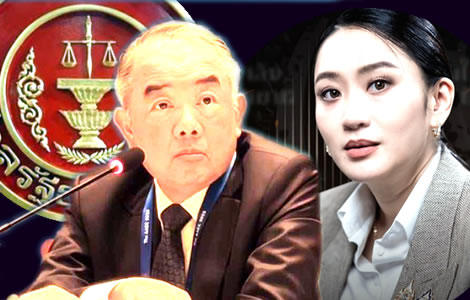
Thailand is currently gripped by a tense and uncertain political atmosphere. Tension is in the air as street protests gather up steam in Bangkok and the government engineers an extensive cabinet reshuffle. All eyes are now on the Constitutional Court, which will soon decide whether to proceed with a potentially explosive case.
One that could very well upend the government and perhaps even the democratic order.
At the centre of this political storm is a leaked audio clip. Released last week, the clip features Prime Minister Paetongtarn Shinawatra in a candid conversation with former Cambodian Prime Minister Hun Sen. Her tone, casual and deferential, shocked the public and rattled the government.
Leaked audio clip between pm Paetongtarn Shinawatra and Hun Sen ignites fierce political storm in Thailand
Legal experts, academics, and commentators describe the clip as potentially devastating. Many say it could make her position legally untenable. According to them, Thai law leaves little room for ambiguity.
Crucially, the conversation allegedly occurred during a time of heightened military sensitivity. It coincided with martial law enforcement along the Thai-Cambodian border. There, the Thai military held full operational control. Any interference by a civilian leader, they argue, may be unconstitutional.
Petitioners have already submitted four formal complaints against the Prime Minister. These cite possible breaches of the Criminal Code, the 2017 Constitution and national ethics laws. They also reference threats to national security and misuse of constitutional authority.
Some lawmakers want her suspended immediately. Others urge caution, pointing to the unclear origin of the recording. Was the leak legitimate? Or was it political sabotage?
Legal experts warn leaked audio clip could trigger constitutional crisis and calls for suspension intensify
Still, despite the uncertainty, one thing is clear. The leaked recording has severely undermined public trust. Her critics interpret her comments as dangerously submissive to a foreign leader. For example, she allegedly said, “If you want anything, just tell me, I’ll take care of it.” That phrase has drawn sharp criticism.
While seemingly benign, the line is viewed as reckless and ethically alarming. Critics argue it damages Thai sovereignty. Moreover, it suggests a willingness to place foreign relationships over national interests.
Importantly, this interpretation forms the basis of several legal arguments. A coalition of civic groups, politicians, and lawyers now claims she failed to uphold her duty as Prime Minister.
However, the case is complex. Even Mr. Nakarin Mektrairat, President of the Constitutional Court, admits that. Speaking at the Siam Kempinski Hotel on Tuesday, he described the case as “deeply troubling.”
Public trust erodes as critics condemn PM’s submission to foreign leader and court president voices concern
He revealed that the court will meet on July 1. First, they must assess whether to accept the petition. Only then will they decide on further action.
“The judiciary must first examine the complete documents,” Nakarin stated. “We have to see if they meet procedural requirements.”
Significantly, he did not rule out rejecting the case altogether. Yet if the court accepts it, he emphasized, it will proceed with full seriousness.
“This is not a simple issue,” he said. “We are aware of its implications.”
Asked whether the Prime Minister could be suspended during proceedings, Nakarin remained cautious. “Suspension isn’t automatic,” he said. “We must assess whether continuing in office will cause damage.”
His remarks reflect how sensitive the matter is — legally, politically and socially. Meanwhile, analysts warn that Thailand’s political system may be nearing a breaking point.
Academics fear the fallout of removing the Prime Minister. They say it could destabilize the country. Some even warn of military involvement. After all, memories of the 2006 and 2014 coups still linger.
This tension likely explains why coalition parties like the Democrat Party and the United Thai Nation Party continue supporting Paetongtarn. So far, they have not withdrawn their backing. The collapse of the government could pave the way for an unelected regime.
Suspicion also surrounds the clip’s origin. Some believe it came from Cambodian sources. If so, it may have been a calculated act of sabotage. Its sudden appearance has fueled speculation and distrust.
Constitutional Court president outlines July 1 review and cautious approach amid high-stakes legal battle
In parallel, legal pressure continues to mount. Watchdog groups, including the National Anti-Corruption Commission (NACC), are calling for action. The NACC may investigate possible violations of Sections 160 and 170 of the Constitution. These address ministerial conduct and qualifications.
There are also accusations of national security breaches under the Criminal Code. Although serious, Paetongtarn has so far refused to resign. Instead, she continues her duties and plans a cabinet reshuffle. This follows the Bhumjaithai Party’s exit from the coalition.
However, her future may now rest solely with the Constitutional Court. Legal scholars remain divided. Some believe the clip clearly violates ethical standards. Others argue it may not meet the threshold for dismissal.
Assoc. Prof. Dr. Thanapat Patchim of Suan Dusit University offered a balanced view. “The tone was problematic,” he said. “Yet we must consider the broader context.”
He suggested the Prime Minister may have been trying to preserve peace. “But words matter,” he added.
The court must now determine if the clip reflects a private bond or a public failing. One voice in the recording says, “I don’t want uncle to listen to people on the other side.” While casual, it raises red flags.
Critics see this as a breach of decorum. They say it blurs personal and official lines. However, defenders argue it was just an informal chat, not official diplomacy.
Soon, the Constitutional Court must decide two key questions. Is the audio admissible? And if so, does it justify removing the Prime Minister?
Coalition holds firm amid rising legal pressure while analysts warn of political collapse and military risk
Notably, there is precedent. In a case involving ex-Prime Minister Settha Thavisin, the court accepted a petition and suspended him immediately. That shadow now looms. Indeed this case is more ominous and darker.
July 1st set as the date for the Constitutional Court to deal with the case that could see the PM removed
PM Paetongtarn reshuffles the deck on the Titanic in a major cabinet shuffle as her government treads water
Senate petitions the Constitutional Court seeking the removal of Prime Minister Paetongtarn from office
PM Paetongtarn’s phone call to Hun Sen has plunged Thailand into a political quagmire that spells coup
The substance of the audio clip is hard to forget. For instance, the PM’s derogatory comments about the military and its commander responsible for implementing martial law at Cambodian border crossing points are seen by many as too close to the bone.
Mr. Nakarin’s candor shows this is more than a legal process. The government’s fate and perhaps Thailand’s democratic future, hangs in the balance.
The case may move quickly. Analysts expect a ruling by late July or August. However, it may yet come on July 1st. Meanwhile, the nation waits, anxious and divided.
For now, all attention turns to July 1. Mr. Nakarin has vowed the court will fulfil its duty, no matter how difficult.
“We are concerned,” he said. “But we must proceed.”
Join the Thai News forum, follow Thai Examiner on Facebook here
Receive all our stories as they come out on Telegram here
Follow Thai Examiner here
Further reading:
Prime Minister Paetongtarn pulls her government back from the brink with emotional televised apology
Government on brink of collapse as the Bhumjaithai withdraws from Paetongtarn’s cabinet over clip



